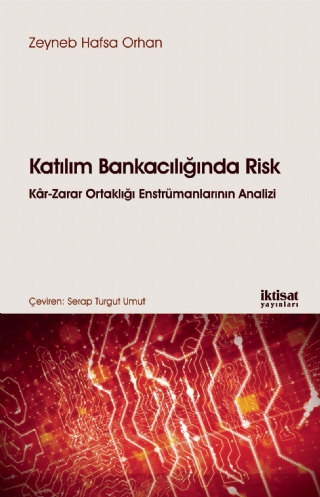Basic Islamic Sciences \ 1-1
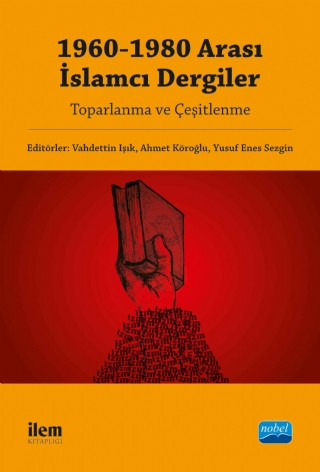
With each passing day, we understand better that the period of introversion shaped around the adventure of the nation-state creates a serious limit in the world of thought. This can be clearly observed when agendas, concepts, and priorities in handling issues are followed. It is possible to say that the period when the signs of overcoming this limitation were seen in the most concrete way was the years between 1960 and 1980, when the multi-party life became relatively permanent. To a certain extent, this period, in which different layers of the public are directly involved in the process, continues to be influential today, both in terms of its specific weight in Turkey's recent history, as well as new searches, channels, institutionalizations, diversifications and discourse differentiations in the history of Islamist thought and publishing. .
In addition, the fact that a significant part of the people who took an active role in the activities of the period are still alive, allows a tested eye to examine a reading to be made from today. Considering that a very important part of the cadres who carry today's Turkey in politics, bureaucracy, civil institutions and intellectual fields are the generations that grew up in the 1960-1980 period, the importance of those years will be better understood. In conclusion, in order to better understand the present, it is quite clear that it is necessary to closely examine the years of 1960-80, which is almost the womb of today. Therefore, both contributing to the understanding of the process we are witnessing and providing the opportunity to create a bridge between these living historical witnesses and new generations reveals both the intention and the value of this study.
In addition, the fact that a significant part of the people who took an active role in the activities of the period are still alive, allows a tested eye to examine a reading to be made from today. Considering that a very important part of the cadres who carry today's Turkey in politics, bureaucracy, civil institutions and intellectual fields are the generations that grew up in the 1960-1980 period, the importance of those years will be better understood. In conclusion, in order to better understand the present, it is quite clear that it is necessary to closely examine the years of 1960-80, which is almost the womb of today. Therefore, both contributing to the understanding of the process we are witnessing and providing the opportunity to create a bridge between these living historical witnesses and new generations reveals both the intention and the value of this study.
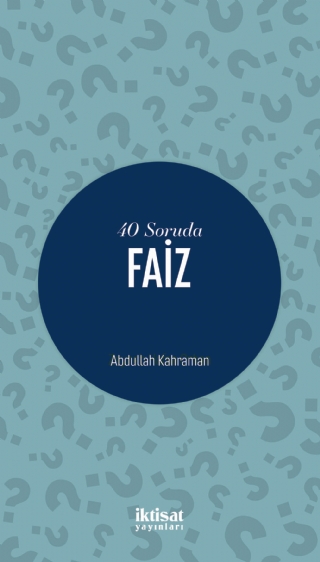
In this book, which is the eighth book in the "What You Need to Know in 40 Questions" series of books that provide short, practical and qualified answers to the questions of the reader about the practices or institutions related to Islamic economics, the subject of interest is discussed around 40 questions from various aspects. One of the main issues of the universal message sent by Allah (c.c.) to humanity is the prohibition of interest/riba. Because, interest is a practice that brings with it many harms, vices and evils in terms of religion, morality, social and economic aspects. The book deals with such an important subject as a whole; It has covered a wide area from its history to its implementation and the systems and discourses formed around it.

In this work, which is the first book in the "What You Need to Know in 40 Questions" series, consisting of books that provide practical, short and qualified answers to the questions of the reader about the practices and institutions in Islamic economics, information about Islamic banking in the world and the basics of the system known as participation banking in our country is presented in a theoretical way around 40 questions. It is given in a format that can be easily understood by people of all levels, rather than depth.
While determining the 40 questions in this book, it has been given importance to include all possible aspects of understanding participation banking and to take into account personal and social experiences with the questions asked so far. During the preparation of the answers to the questions, the experiences, thoughts and concerns of the individuals working in the sector, especially individual customers who have contact with participation banking, as well as the information obtained from the instructors and written materials were taken into account. In order not to tire the reader, a maximum of 400-500 words of explanation is given for each answer. In order to better understand the explanations, figures and figures were used where deemed appropriate. The main feature that distinguishes the book from the existing literature is that the segment it addresses is wider.
While determining the 40 questions in this book, it has been given importance to include all possible aspects of understanding participation banking and to take into account personal and social experiences with the questions asked so far. During the preparation of the answers to the questions, the experiences, thoughts and concerns of the individuals working in the sector, especially individual customers who have contact with participation banking, as well as the information obtained from the instructors and written materials were taken into account. In order not to tire the reader, a maximum of 400-500 words of explanation is given for each answer. In order to better understand the explanations, figures and figures were used where deemed appropriate. The main feature that distinguishes the book from the existing literature is that the segment it addresses is wider.

In this book, which is the seventh book in the "What You Need to Know in 40 Questions" series of books that provide short, practical and qualified answers to the questions of the reader about the practices or institutions related to Islamic economics, the subject of murabaha is handled around 40 questions from various aspects.
Murabaha contract is the type of contract that is mostly applied in the interest-free banking sector, which has been operating in different countries of the world since the 1970s, and largely determines the direction of the interest-free operation. In this context, examining the historical development, stages, problematic points and discussions of such a process will provide the reader with an important background in the field of Islamic economics and especially modern contracts. The questions addressed not only focus on the practical aspects of murabaha, but also aim to reveal the background of the process in many ways. In this respect, the content of the book includes the technical, fiqh, legal, economic and intellectual aspects of the subject.
Murabaha contract is the type of contract that is mostly applied in the interest-free banking sector, which has been operating in different countries of the world since the 1970s, and largely determines the direction of the interest-free operation. In this context, examining the historical development, stages, problematic points and discussions of such a process will provide the reader with an important background in the field of Islamic economics and especially modern contracts. The questions addressed not only focus on the practical aspects of murabaha, but also aim to reveal the background of the process in many ways. In this respect, the content of the book includes the technical, fiqh, legal, economic and intellectual aspects of the subject.

In this book, which is the sixth book in the "What You Need to Know in 40 Questions" series of books that provide short, practical and qualified answers to the questions of the reader about the practices or institutions related to Islamic economics, the subject of sukök and the stock market is discussed around 40 questions from various aspects.
Sukuk and stock market transactions, which are a special method of traditional securitization, are among the most important financial engineering issues of our time. As the issue is current, it is also quite intricate, comprehensive and variable. For this reason, the book presents these two subjects in an up-to-date framework that can be understood by people of all levels, with its fluent and plain language. The most important feature of the book compared to its counterparts is that it not only examines the subject from a descriptive and technical point of view, but also criticizes it in terms of jurisprudence.
Sukuk and stock market transactions, which are a special method of traditional securitization, are among the most important financial engineering issues of our time. As the issue is current, it is also quite intricate, comprehensive and variable. For this reason, the book presents these two subjects in an up-to-date framework that can be understood by people of all levels, with its fluent and plain language. The most important feature of the book compared to its counterparts is that it not only examines the subject from a descriptive and technical point of view, but also criticizes it in terms of jurisprudence.
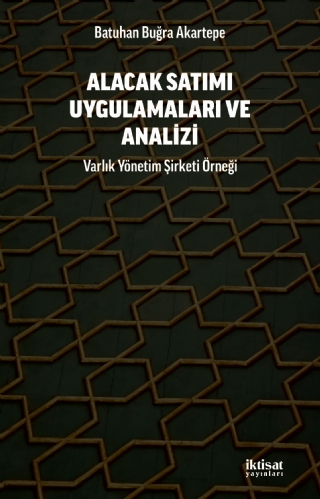
In the commercial relations that human beings have entered, they can pay the price of the products they buy in cash, or they can pay them in deferred payment by way of borrowing. Today, the majority of commercial relations are made by borrowing method and the maturity of the debts in question is long, causing the person or institutions in the position of creditors to have cash problems. The creditor party sells the receivables in question, which we expect to be collected from the debtor, in order to meet his cash needs and to eliminate the loss in the best way possible due to the debtors' insolvency. The book evaluates this practice, which has become widespread because it is a current issue that concerns the majority of the society, in terms of Islamic law. The amount of debt in the economies has increased as a result of the fact that commercial dyestuffs are not based on cash payments and are carried out mostly by borrowing. Due to the effects of economic crises and other factors, difficulties were experienced in repayment of debts and the loss of the creditor came to the fore. Various methods have been used to eliminate this damage. One of the theories operating in this context is the asset management companies that come to the forefront with their assignment of receivables. The purpose of this book, which deals with the assignment of receivables practices performed by asset management companies, is to determine the principles and provisions of Islamic law that are revealed from the subject of assignment of receivables, to analyze the activities of asset management companies in the field of application, and finally to evaluate the current practice according to the principles of Islamic law.
In the book, the sources of the Shafii, Hanteli, Maliki and Zahiri sects were also examined in order to evaluate the views put forward about the receivables sales transactions as the basis, as well as the views of the Hanafi sect.
In the book, the sources of the Shafii, Hanteli, Maliki and Zahiri sects were also examined in order to evaluate the views put forward about the receivables sales transactions as the basis, as well as the views of the Hanafi sect.
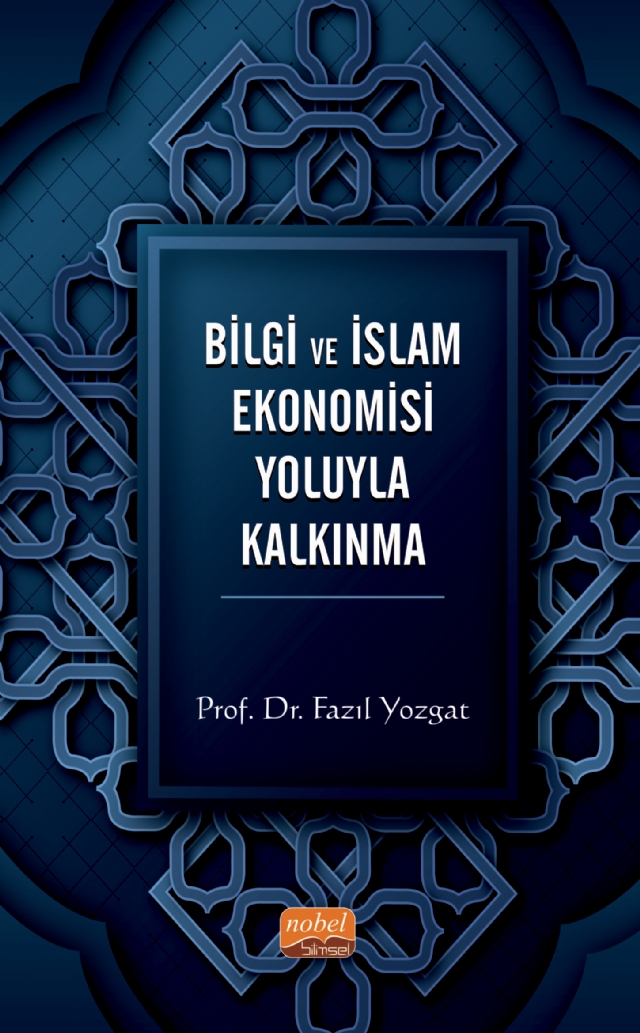
In this study, development through knowledge and Islamic economics is examined in a theoretical and practical context. In the words of Francis Bacon, “Knowledge is power”. The way to be strong in every field is through knowledge. The work of the Royal Society was one of the important factors in Britain's dominance in the world at the turn of the century. Despite the social and political turmoil, Académie Française did not break its system and led France to become an economic and social power. The German Academy of Sciences, the Italian Accademia dei Lincei and the Royal Swedish Academy of Sciences have played a similar role in their countries. The most important work that prepared the infrastructure for Japan to become what it is today is a six-volume report prepared by the Iwakura delegation as a result of examining the countries they have traveled to, especially the USA. For us, the dissolution of Encümen-i Daniş after 12 years, for an uncertain reason, is a serious breaking point. The proposals of movements such as the Young Turks, who were influenced by the West since the Tanzima, to change with political discourses rather than science and development, were not consistent in the ordinary flow of political and social life.
Again, in this study, the basic concepts related to Islamic economics are analyzed in an analytical framework. In the words of Cemil Meriç, "Every recipe is a falsification". The basic concepts of Islamic economics have been analyzed without distorting the meaning as much as possible. Because the basic terms related to economic life are universal and concern all Muslims. If Islamic countries cannot find a solution to their economic problems despite their natural wealth, there are some structural deficiencies. In this framework, evaluations were made about the efficient use of labor and the application of the methods applied by international organizations in its contribution to production in our country. With this work, it is aimed to contribute to the Islamic intellectual golden ring in order to "compete in charity" and "make the world prosperous" with the motto of "seeking the knowledge that is the believer's lost property" and "the hand that gives is superior to the hand that receives".
Again, in this study, the basic concepts related to Islamic economics are analyzed in an analytical framework. In the words of Cemil Meriç, "Every recipe is a falsification". The basic concepts of Islamic economics have been analyzed without distorting the meaning as much as possible. Because the basic terms related to economic life are universal and concern all Muslims. If Islamic countries cannot find a solution to their economic problems despite their natural wealth, there are some structural deficiencies. In this framework, evaluations were made about the efficient use of labor and the application of the methods applied by international organizations in its contribution to production in our country. With this work, it is aimed to contribute to the Islamic intellectual golden ring in order to "compete in charity" and "make the world prosperous" with the motto of "seeking the knowledge that is the believer's lost property" and "the hand that gives is superior to the hand that receives".
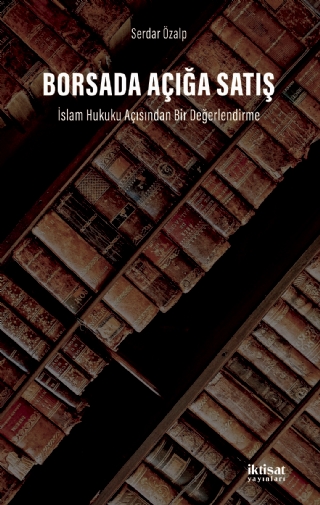
The stock market, which contains many transactions and applications, is important for Islamic economic studies.
As a matter of fact, the stock market, in terms of having shares, debt instruments, futures and options, precious metals and precious stones markets and many products and contracts belonging to these markets it has a rich structure in terms of subject for Islamic economic studies. Although the transactions applied in the stock market are based on a legal basis, the implementation of these transactions brings with it many fiqh issues and problems. The same is true for the short selling transaction, which is one of these transactions. Because the short selling process includes many fiqh issues. For this reason, the aim of the study is to reveal the technical implementation of the short selling process in the stock market.
and to make a fiqh evaluation.
The book deals with the aspects of short selling as a financial product that need legal analysis. In this regard, the subject; It examines the subject, purpose, importance, method and resources of the research in three parts together with the introduction part. In the first chapter, various concepts that can be encountered in short selling transactions are included and the issues that arise in the jurisprudence evaluation of the transaction are briefly touched upon. In the second part of the research, the definitions made for the short selling transaction are classified and discussed, and then the detailed application of the transaction, its types and its economic effects on the market are mentioned. In the third part, four subjects determined in terms of fiqh are discussed.
The evaluation of the process in terms of Islamic law is given.
The book constitutes an important contribution to the Turkish literature, especially considering the lack of a Turkish study dealing with the fiqh aspect of the subject.
As a matter of fact, the stock market, in terms of having shares, debt instruments, futures and options, precious metals and precious stones markets and many products and contracts belonging to these markets it has a rich structure in terms of subject for Islamic economic studies. Although the transactions applied in the stock market are based on a legal basis, the implementation of these transactions brings with it many fiqh issues and problems. The same is true for the short selling transaction, which is one of these transactions. Because the short selling process includes many fiqh issues. For this reason, the aim of the study is to reveal the technical implementation of the short selling process in the stock market.
and to make a fiqh evaluation.
The book deals with the aspects of short selling as a financial product that need legal analysis. In this regard, the subject; It examines the subject, purpose, importance, method and resources of the research in three parts together with the introduction part. In the first chapter, various concepts that can be encountered in short selling transactions are included and the issues that arise in the jurisprudence evaluation of the transaction are briefly touched upon. In the second part of the research, the definitions made for the short selling transaction are classified and discussed, and then the detailed application of the transaction, its types and its economic effects on the market are mentioned. In the third part, four subjects determined in terms of fiqh are discussed.
The evaluation of the process in terms of Islamic law is given.
The book constitutes an important contribution to the Turkish literature, especially considering the lack of a Turkish study dealing with the fiqh aspect of the subject.

Growth is the most basic phenomenon that we encounter in all areas of life in the capitalist model. Because the model based on supply has indexed its sustainability to growth. In order to spread and sustain the capitalist codes of the system, societies are also organized with the motivation of growth and with rational or irrational codes according to the period. But this ideal, which the masses and societies are dragged after, is a cheap fiction and illusion. Because capitalism is a model of withholding. Growth is only the growth of the capitalist, and its benefits are denied to others. The treatise of utility reconsiders the theory of utility from the perspective of Islamic economics with its concrete (material) and intangible (spiritual) aspects. On the basis of production-consumption indivisibility, the author proposes a solution to the problem of the distribution of the produced income of capitalism with the principle of effort. The work, Hâce Yûsuf b. With the imagination that Ayyub al-Hamedânf placed on the theory of Rötbetü'l Hayat, he explains the economic structure of the utility dimensions ignored by capitalism with mathematical relations. While discussing the philosophical background that feeds the utility theory in the work, the details of the common set of fitra are examined. At the same time, while the financial intermediation paradigm is being questioned, determinations on the collective role of Islamic economic institutions are included.
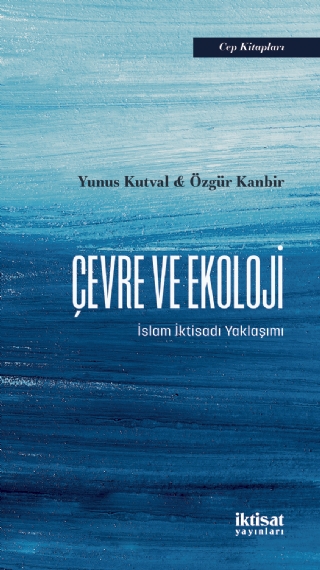
In this book, which is the seventh book in the Pocket Books series, which covers the basic institutions and issues of Islamic economics, the subject of environment and ecology has been tried to be explained in a content that can be easily understood by people of all levels, rather than a theoretical depth. Today, capitalism is largely abstracted from moral values. It sees the damages as human, global warming and environmental disasters. Islamic economics, which is shaped within the framework of the principles of the religion of Islam, rises as an alternative to these corrupt production relations based on exploiting human and nature. According to the religion of Islam, the vicegerent of Allah on earth is man. According to the human model defined by Islamic economics, which is shaped within the framework of Islamic principles, nature should be seen as a trust from the creator, all living and non-living beings should be respected, and economic activities with ethical values should be carried out, not production-consumption oriented. In this sense, the book approaches the subject of ecology and environment from the perspective of Islamic economics and offers solutions on the subject.

In this work, which is the fifth book of the Pocket Books series, which covers the basic institutions and issues of Islamic economics, the subject of value is tried to be explained in a content that can be understood by people of all levels, together with its theoretical and practical dimensions. In today's world, an economic understanding that we call capitalism, which has become global, seems to be universal and without alternatives, is dominant. Therefore, as people born into the modern world, we establish our economic relations within the limits set for us by capitalist production, consumption and distribution techniques. We think that we have no alternative but to speak the language of the dominant economic understanding and produce practice. We can attribute a suprahistorical role to these concepts by ignoring that the settlement of some concepts in the society in this created language has a historical process and context and that they continue to undergo a continuous change and transformation of meaning. This attitude makes us passive in economic relations and ties our hands in the construction of alternative economic systems. This work is part of the Pocket Books series based on the reinterpretation of basic concepts in economics. With this study, which deals with the concept of value, one of the most important concepts of economics, the meaning of a "value-free" economic thought based on unquestioning acceptance for many of us, the effect of this thought on our daily relations and the construction of a value-laden economic system beyond the current economic understanding. starting points are discussed.
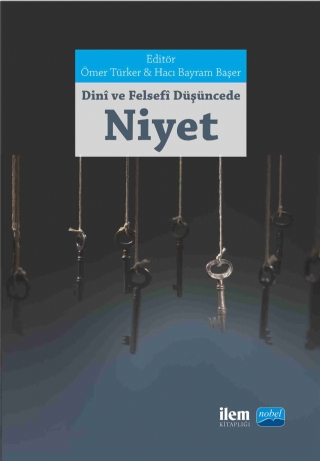
Intention is one of the most fundamental concepts of morality, as one of the key stages in the formation of behavior. In both religious and philosophical thought, intention is considered as the element that adds value to the action and makes it meaningful. In this respect, intention and various states of intention are of decisive importance in terms of both the meaning of being religious and being moral. However, the theoretical dimensions of intention have not been examined in sufficient depth. In this context, the book in your hand aims to identify the views and theories that emerged in the traditions of Islamic thought about the role of intention in the formation of the act; It aims to reveal what and to what extent the contribution of the intention is in the evaluation of the legal, religious and especially the moral value of the act and to clarify the role of the intention in the name and definition given to the perpetrator of an act.
This book, which consists of the works presented at the Workshop on Intention in Religious and Philosophical Thought, held in Istanbul on September 30-October 1, 2016 within the scope of the Islamic Moral Thought Project, covers religious sciences such as fiqh, kalam and mysticism, as well as the subject of intention in Islamic philosophy and Western philosophy. It consists of a total of nine articles examining how it is handled.
This book, which consists of the works presented at the Workshop on Intention in Religious and Philosophical Thought, held in Istanbul on September 30-October 1, 2016 within the scope of the Islamic Moral Thought Project, covers religious sciences such as fiqh, kalam and mysticism, as well as the subject of intention in Islamic philosophy and Western philosophy. It consists of a total of nine articles examining how it is handled.
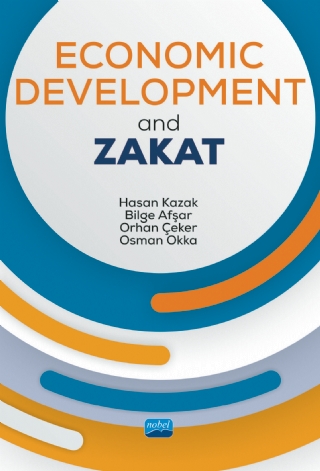
An integrated system, Islam consists of several subsystems. The economy has an important place in these sub-systems. In this respect, Islam also includes regulations on economic growth and development. Undoubtedly, the most important of these regulations is the zakat institution. Zakat was mentioned in many parts of Koran with the prayer, accepted as the pillar of religion in many places and an important message that zakat and prayer should not be separated was given.
The most known and prominent feature of the zakat institution is its contribution to the fair distribution of national income, which is an important indicator in terms of economic development. A lot of work has been written on this subject and this issue has been mentioned in almost every sermon of Islamic scholars. However, the zakat institution has much more significance and benefits in terms of economic growth and development process.
The main purpose of this study is to create a resource for the qualitative and quantitative studies that will be carried out, by revealing other contributions of zakat to economic growth and development, which are not in the foreground but are actually much more functional as well as its other well-known contribution to income distribution.
The most known and prominent feature of the zakat institution is its contribution to the fair distribution of national income, which is an important indicator in terms of economic development. A lot of work has been written on this subject and this issue has been mentioned in almost every sermon of Islamic scholars. However, the zakat institution has much more significance and benefits in terms of economic growth and development process.
The main purpose of this study is to create a resource for the qualitative and quantitative studies that will be carried out, by revealing other contributions of zakat to economic growth and development, which are not in the foreground but are actually much more functional as well as its other well-known contribution to income distribution.
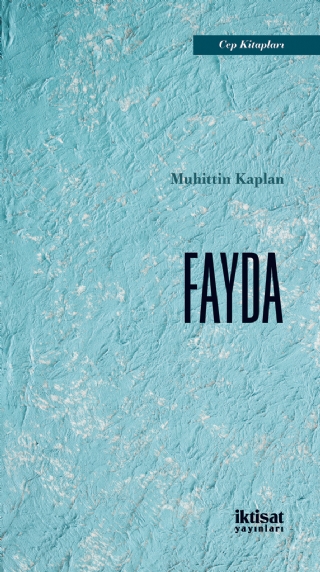
In this book, which is the eighth book in the Pocket Books series, which covers the basic institutions and issues of Islamic economics, the subject of utility is tried to be explained in a content that can be easily understood by people of all levels, rather than a theoretical depth. The book examines the meaning, role and importance of the concept of utility in modern economics and Islamic economic theory, taking into account the evolution of the concept over time. Accordingly, the book is organized into four parts. In the first part; The approach in which utility is defined as the ability of goods to meet human needs is discussed. In the second part; The approach in which benefit is defined as the satisfaction, pleasure and happiness obtained from the consumption of goods and services, that is, the "cardinal approach to benefit" has been examined. In the third part; The modern approach to the concept of utility, the "ordinate to utility" approach, in which utility is included in the analysis as a way to rank consumer preferences, is explained. In the fourth chapter, the framework of the concept of utility in Islamic economics is drawn and its differences from mainstream economics are explained.
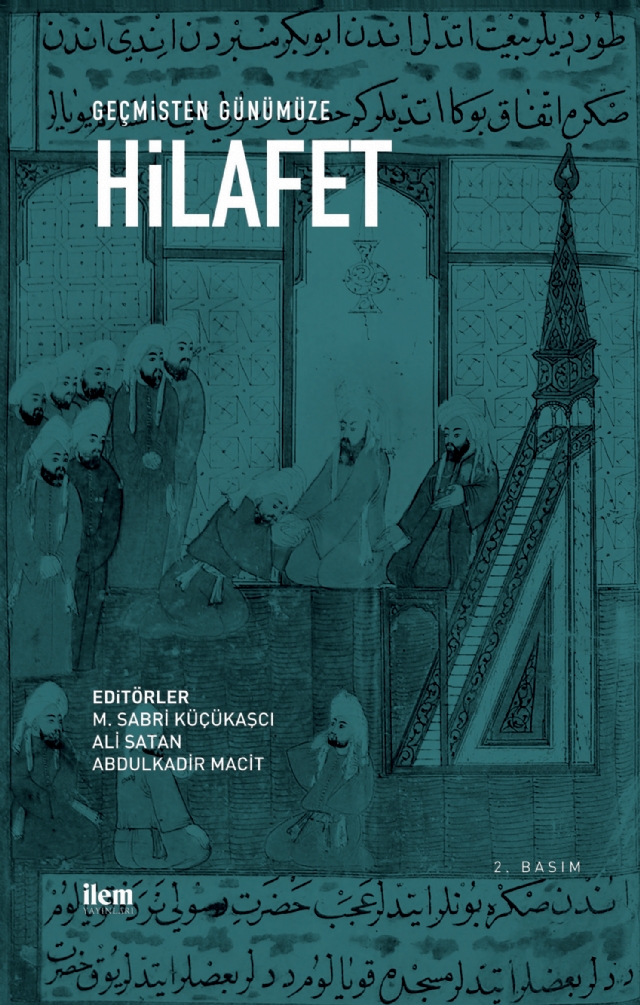
The caliphate, one of the most important institutions in the history of Islam, is among the critical concepts of the literature of Islamic political thought. The way the concept takes place in Islamic sources and its forms that have been the subject of theological and political thought have responded to the states' search for sovereignty and authority since the first periods of Islamic history.
This book, which includes 9 articles, puts forward the issues such as what kind of process the caliphate followed in the pre-modern period and what functions it fulfilled, and what discussions took place about it. It aims to benefit from the past experience in the determination and criticism of current issues.
It is hoped that this study/work, which contains the papers of the workshop held on the occasion of the 500th anniversary of the succession of the Caliphate to the Turks, will be instrumental in many more new/original researches and will serve to commemorate and understand this great historical heritage correctly.
This book, which includes 9 articles, puts forward the issues such as what kind of process the caliphate followed in the pre-modern period and what functions it fulfilled, and what discussions took place about it. It aims to benefit from the past experience in the determination and criticism of current issues.
It is hoped that this study/work, which contains the papers of the workshop held on the occasion of the 500th anniversary of the succession of the Caliphate to the Turks, will be instrumental in many more new/original researches and will serve to commemorate and understand this great historical heritage correctly.
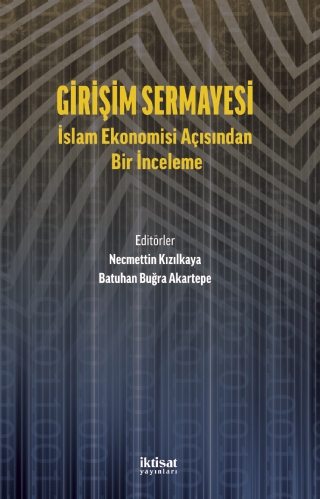
There have been people who are creative and have new ideas throughout history. These ideas led to the development of alternative models outside of the ongoing economic habits and opened the door to innovations.
Today, many innovations, especially in the field of technology, emerge as a result of the maturation of such ideas. Venture/venture capital is an important financial instrument in this respect, which refers to being a partner in these initiatives in order to meet the funding needs of individuals and companies with new ideas. It is an important feature of this partnership that one party takes the risk and aims to earn long-term returns by putting forth the capital of the other party and the creative thinking of the other party. In this respect, venture capital is an alternative model different from classical financing models. The profit-loss-based partnership structure in venture capital is suitable for the objectives that Islamic Economics wants to achieve. For this reason, it is an important investment tool that public and private institutions, universities and companies can apply, especially participation banks. This book in your hand examines the history, current situation, legal structure, economic opportunities, tax and accounting dimensions of venture capital. In this respect, it aims to fill an important gap in this issue, which has been neglected in terms of both theory and practice.
Today, many innovations, especially in the field of technology, emerge as a result of the maturation of such ideas. Venture/venture capital is an important financial instrument in this respect, which refers to being a partner in these initiatives in order to meet the funding needs of individuals and companies with new ideas. It is an important feature of this partnership that one party takes the risk and aims to earn long-term returns by putting forth the capital of the other party and the creative thinking of the other party. In this respect, venture capital is an alternative model different from classical financing models. The profit-loss-based partnership structure in venture capital is suitable for the objectives that Islamic Economics wants to achieve. For this reason, it is an important investment tool that public and private institutions, universities and companies can apply, especially participation banks. This book in your hand examines the history, current situation, legal structure, economic opportunities, tax and accounting dimensions of venture capital. In this respect, it aims to fill an important gap in this issue, which has been neglected in terms of both theory and practice.
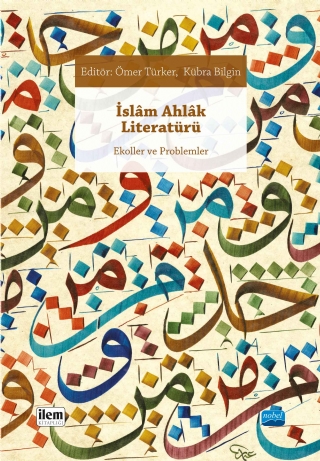
Ethics is a field that has been widely discussed in Islamic thought, from practical philosophy to various religious sciences. In this respect, while morality is accepted as one of the philosophical sciences, it is also discussed with different aspects in religious sciences such as hadith, kalam, fiqh and mysticism. In order to examine and present morality, which is at the intersection of more than one discipline, with all its dimensions, these sciences should be handled in terms of their own internal dynamics. Such an effort seems to be essential for understanding the morality in Islamic thought with all its dimensions.
Based on this need, roundtable meetings titled “Basic Characteristics of Islamic Moral Literature” were held between March 2013 and March 2014 within the scope of the “Islamic Moral Thought Project” carried out by the Scientific Studies Association (ILEM) and the İLKE Science Culture and Education Association, and the literature on ethics was held in the context of its own characteristics. has been discussed. This book in your hand consists of articles from the presentations made at these meetings.
Based on this need, roundtable meetings titled “Basic Characteristics of Islamic Moral Literature” were held between March 2013 and March 2014 within the scope of the “Islamic Moral Thought Project” carried out by the Scientific Studies Association (ILEM) and the İLKE Science Culture and Education Association, and the literature on ethics was held in the context of its own characteristics. has been discussed. This book in your hand consists of articles from the presentations made at these meetings.
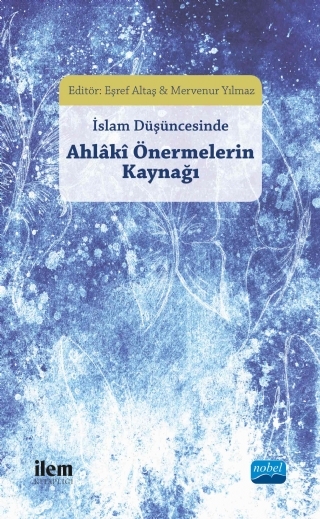
What is the principle or source that enables us to evaluate moral judgments, in other words, moral propositions as good or bad? It is possible to find different answers in the history of thought that this source is pleasure, nature, emotion, reason, intuition, society, and divine will. But where do I get that Justice is good and cruelty is bad? The answer we give to the question brings us face to face with different questions again. For example, if our answer is the mind, what is the characteristic of this mind or which mind is it? Do human nature, emotions, intuition play a role in the society's judgment of good and bad actions regarding actions? What is the role of divine revelation in determining the moral field? In this book, it is aimed to deal with such questions that can be multiplied in relation to moral judgments, mainly under the question of the source of moral propositions.
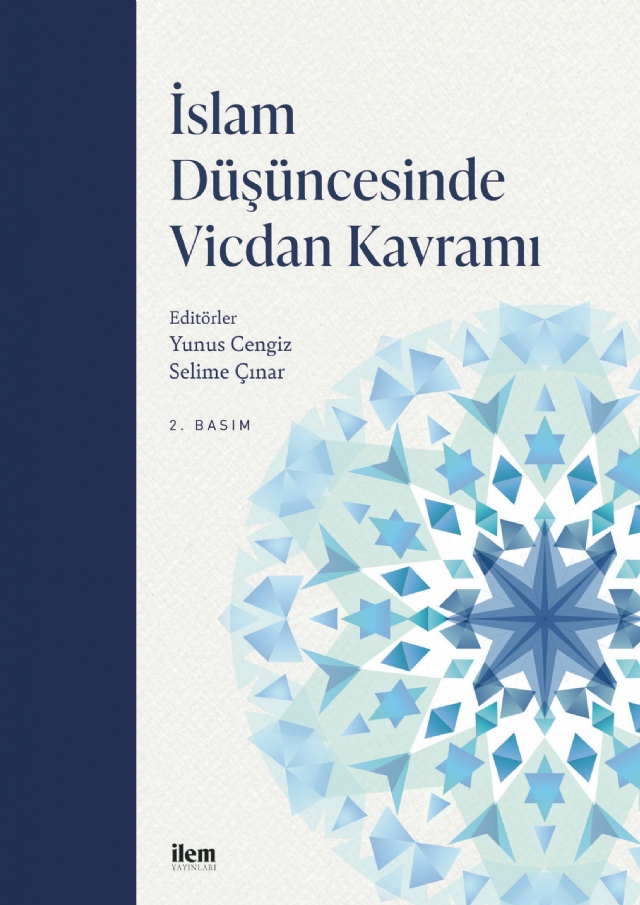
The concept of conscience, which is one of the key concepts for moral thought, is often used in the sense of "moral consciousness" today. When we look at the thought of Islam, it is difficult to say that the word conscience is used in this sense or that it is commonly used with such a content. As a matter of fact, in many texts, this concept is mentioned in a way that corresponds to intuition in an epistemological sense, not moral.
The aim of this study is to process the concept of conscience through Islamic traditions and to determine the equivalent of the concept in these traditions. This situation necessitates us to deal with the texts that aim to analyze the mental states and their practical consequences that provide the moral awareness of the actor against an action, regardless of whether the conscience is literal or not. If we do this, we will not only find the opportunity to reinterpret the classical texts on moral psychology, but also contribute to the reproduction of Islamic moral philosophy.
In the articles included in this book, which consists of the works presented at the Conscience in Islamic Thought Workshop hosted by İLEM-ILKE on June 3-4, 2016 within the scope of the Islamic Moral Thought Project, the way of problematizing the inner state that encourages people to act correctly, their reflections in different fields and psychological -theological foundations are discussed in terms of relevant traditions.
The aim of this study is to process the concept of conscience through Islamic traditions and to determine the equivalent of the concept in these traditions. This situation necessitates us to deal with the texts that aim to analyze the mental states and their practical consequences that provide the moral awareness of the actor against an action, regardless of whether the conscience is literal or not. If we do this, we will not only find the opportunity to reinterpret the classical texts on moral psychology, but also contribute to the reproduction of Islamic moral philosophy.
In the articles included in this book, which consists of the works presented at the Conscience in Islamic Thought Workshop hosted by İLEM-ILKE on June 3-4, 2016 within the scope of the Islamic Moral Thought Project, the way of problematizing the inner state that encourages people to act correctly, their reflections in different fields and psychological -theological foundations are discussed in terms of relevant traditions.
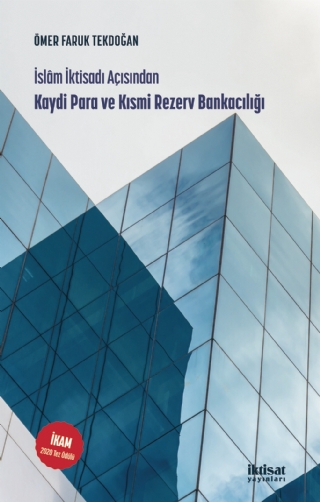
The partial reserve system, which we can call the basis of modern finance, has been the subject of discussion from past to present due to its weak structure, the role it played in economic instability and the problems it created. This interest-based system, which ensures that most of the money supply is dematerialized, has led to a macro-ribâ system that envelops economic life. The full reserve system, which was developed as an alternative to this system, could not find its place in practice. From the point of view of Islamic economics, the fact that the current system is riba-oriented and causes an unfair distribution of resources has necessitated the evaluation of the alternatives put forward from this perspective. The fractional reserve system operates based on confidence that commercial banks and central banks will provide sufficient liquidity when needed, and thus in essence it is prone to financial crises.
is weak and fragile. From this perspective in the book, the problems that are claimed to arise in economies with the discovery of fractional reserve banking are examined, the applicability of full reserve banking and how sufficient it is for a solution are examined, and the suitability and drawbacks of both systems in terms of Islamic economics are discussed. In addition, the effect of both banking systems on economic stability was compared using an agent-based simulation model.
is weak and fragile. From this perspective in the book, the problems that are claimed to arise in economies with the discovery of fractional reserve banking are examined, the applicability of full reserve banking and how sufficient it is for a solution are examined, and the suitability and drawbacks of both systems in terms of Islamic economics are discussed. In addition, the effect of both banking systems on economic stability was compared using an agent-based simulation model.
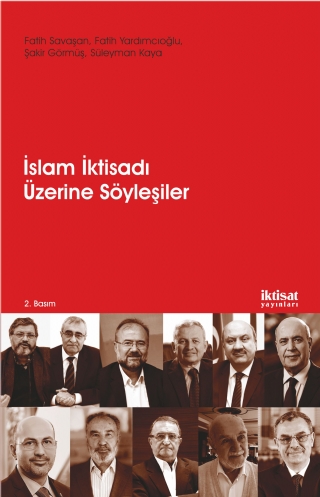
Many issues such as what the economic view of Islam is, whether it offers an economic system, what solutions it provides to people's needs, and through which institutions historically Muslims carry out their economic activities have been discussed by different segments for a long time and still continue to be discussed. Not only theoretical efforts, but also many practical efforts have been put forward and institutions have been established. Sometimes the practice side, led by Islamic banks, directed other theoretical studies, and sometimes the theory tried to influence the practice. On the other hand, with the growth of Islamic finance, regulatory authorities have inevitably been included in this ecosystem. In the end, many stakeholders, interconnected or not, ponder on Islamic economics and finance and contribute to keeping this field on the agenda.
Studies in the field of Islamic economics and finance have increased for Turkey, especially after the 1980s. Islamic lawyers, employees in the Islamic finance sector, regulatory agencies, academics and many more contribute to the field. Among them, some names played leading roles in their own fields and have been influential in the reaching of Islamic economics and finance to a much wider audience today. This book consists of interviews with professors who have worked in this field for many years, industry representatives and regulators operating in the field of Islamic finance.
Studies in the field of Islamic economics and finance have increased for Turkey, especially after the 1980s. Islamic lawyers, employees in the Islamic finance sector, regulatory agencies, academics and many more contribute to the field. Among them, some names played leading roles in their own fields and have been influential in the reaching of Islamic economics and finance to a much wider audience today. This book consists of interviews with professors who have worked in this field for many years, industry representatives and regulators operating in the field of Islamic finance.
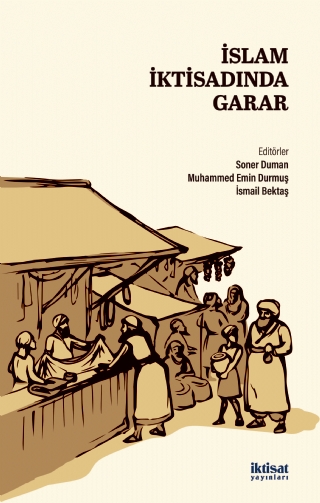
The most basic principles that Islam observes in human relations; observance of justice, prevention of injustice, ensuring social stability, entrusting the trust to those who are competent, open and transparent relations between people, preventing transactions and dispositions that may lead to conflicts between people. These principles also guided the instructions of Islam regarding commercial relations between people. In this context, tortious acts such as theft and extortion are prohibited, as well as interest, verbal or de facto cheating that leads to the exploitation of one party in contracts.
Garar, which is the subject of this book, is also prohibited because it causes commercial relations between people to be carried out in an open and transparent manner and cause conflicts and fights between people. The book consists of the papers presented in the workshop named "Garar in Classical Fiqh and Its Effect on Today's Economic Transactions", which was organized with the aim of addressing many aspects of the ban on garar, which was discussed in the classical fiqh literature and also encountered in modern economic transactions, by the participants, which were developed and converted into articles. This book, in which different authors deal with the prohibition of garar in Islamic fiqh from conceptual, intellectual and methodological perspectives, has been brought together in order to establish a solid link between our classical fiqh heritage and today's economic affairs.
Garar, which is the subject of this book, is also prohibited because it causes commercial relations between people to be carried out in an open and transparent manner and cause conflicts and fights between people. The book consists of the papers presented in the workshop named "Garar in Classical Fiqh and Its Effect on Today's Economic Transactions", which was organized with the aim of addressing many aspects of the ban on garar, which was discussed in the classical fiqh literature and also encountered in modern economic transactions, by the participants, which were developed and converted into articles. This book, in which different authors deal with the prohibition of garar in Islamic fiqh from conceptual, intellectual and methodological perspectives, has been brought together in order to establish a solid link between our classical fiqh heritage and today's economic affairs.
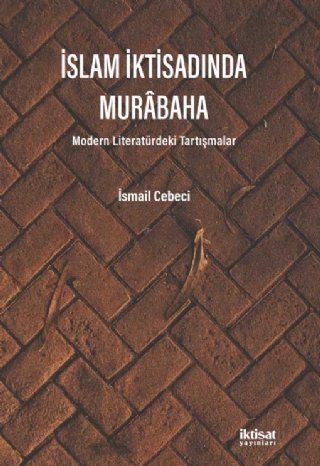
Murabaha contract is one of the most applied and discussed transactions in the interest-free financial system. In the process that has been going on since the 1970s, when interest-free banking began, the subject of murabaha, which has been in the field of interest of many scientific disciplines, especially fiqh and economics, has been an issue that has attracted the attention of the academic community as well as being important for the real sector. The main purpose of this study is to deal with the historical development of such a contract, to follow the stages it went through and to examine the debates about the problematic points it has.
Murabaha, which is known as "production support" and "corporate and individual financing support" in practice in Turkey, is a larger-scale and most widely used transaction today, has common issues with other investment-financing models, as well as many different The fact that it contains a problem point, is the most discussed transaction in the modern period, and shows how a classical contract was modernized are the factors that make this contract important. Murabaha fiqh, economic, social, etc. This study, which aims to address various aspects with a critical and holistic perspective and to reveal the course of reasoning and judgment-making activities in modern Islamic economics problems based on the existing literature, is a candidate to fill an important gap in the literature.
Murabaha, which is known as "production support" and "corporate and individual financing support" in practice in Turkey, is a larger-scale and most widely used transaction today, has common issues with other investment-financing models, as well as many different The fact that it contains a problem point, is the most discussed transaction in the modern period, and shows how a classical contract was modernized are the factors that make this contract important. Murabaha fiqh, economic, social, etc. This study, which aims to address various aspects with a critical and holistic perspective and to reveal the course of reasoning and judgment-making activities in modern Islamic economics problems based on the existing literature, is a candidate to fill an important gap in the literature.
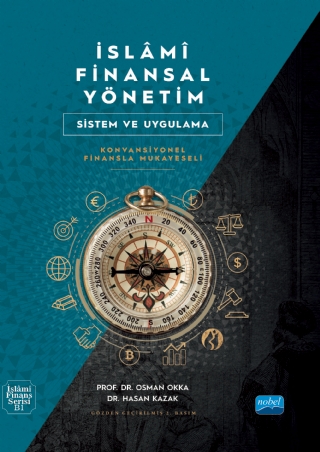
Today, due to the rapid development of the Islamic finance sector and the fact that Islamic funds are approaching 3 trillion dollars, interest in this field has increased gradually, on the one hand, publications in this field have increased, on the other hand, Islamic financial institutions have become institutionalized to a large extent. While all these developments were taking place, the aspect of Islamic finance towards companies together with institutions operating in money and capital markets - that is, studies on the application of national and international companies to ordinary, collective, commandite, limited, joint-stock and holding companies - remained relatively behind. This book has been prepared to meet this need, covering almost all areas of financial management and in comparison with conventional finance. For this reason, the book has an intermediate upper structure.
In the book, the basic principles of finance related to Islamic finance within the framework of Islamic law are presented to the reader in a systematized manner in a systematic way, in comparison with conventional finance, and it is shown in detail how Islamic finance can be applied in all areas of the activities of companies in real life. Thus, it is aimed for the reader to gain knowledge in a structure that can think financially with a numerical and analytical method and solve the financial problems of the company by producing policies in accordance with Islam. Case studies of Islamic finance in the 22nd chapter, that is, case studies, added a different dimension to the book.
In the book, the basic principles of finance related to Islamic finance within the framework of Islamic law are presented to the reader in a systematized manner in a systematic way, in comparison with conventional finance, and it is shown in detail how Islamic finance can be applied in all areas of the activities of companies in real life. Thus, it is aimed for the reader to gain knowledge in a structure that can think financially with a numerical and analytical method and solve the financial problems of the company by producing policies in accordance with Islam. Case studies of Islamic finance in the 22nd chapter, that is, case studies, added a different dimension to the book.
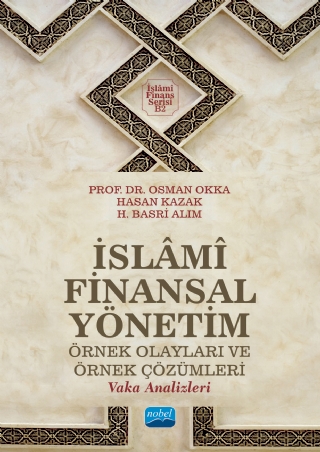
(B-1) Islamic Financial Management: System and Practice (Compared with Conventional Finance) in the first book of the series, what Islamic finance is and its application in today's modern companies (ordinary, collective, commandite, limited, joint-stock, holding companies) by taking into account the Islamic rules on this subject. shape was examined in comparison with conventional firms. Rational behavior and behavior do not change in conventional or Islamic finance. Every person or company tries to act, win, act efficiently in order to be optimal (the best); What is different is that the Islamic financier and manager must act and be successful by taking into account the prohibited and unethical rules according to Islam. As it is known, conventional companies; According to Islam, all kinds of interest, deceitful, morally corrupting, defective, adulterous, causing usurpation of rights, harmful to society, etc., which are considered haram. If they do not engage in activities, they become an Islamic firm. If Islamic companies carry out their activities without considering the harams and prohibitions of Islam, they also turn into conventional companies. Switching between companies is that simple. If an Islamic firm has engaged in haram activities, it first tries to prevent them and at the end of the period, it tries to remove the haram revenues from the firm. In order not to make mistakes, the Islamic financial manager has to know and apply the rules of both conventional and Islamic finance.
In today's economic system, where extreme competition and high capital costs dominate; In order to understand the problems of financial managers and the role of Islamic finance correctly, and then to make the right financial decisions about the company, they need to see real-life financial management problems closely and produce solutions on these problems. These are case studies; It has been prepared to enable our readers to see themselves in the virtual environment of the company, to penetrate deeply into financial management problems, to produce alternative solutions within the framework of Islamic rules and to improve their ability to make the right decision. The book acts as a finance simulator for financiers and those who want to become financiers, as well as company managers. We hope that this book titled (B-2) Islamic Financial Management Case Studies and Case Studies (Case Analysis), which covers 50 case studies, will be useful to you.
In today's economic system, where extreme competition and high capital costs dominate; In order to understand the problems of financial managers and the role of Islamic finance correctly, and then to make the right financial decisions about the company, they need to see real-life financial management problems closely and produce solutions on these problems. These are case studies; It has been prepared to enable our readers to see themselves in the virtual environment of the company, to penetrate deeply into financial management problems, to produce alternative solutions within the framework of Islamic rules and to improve their ability to make the right decision. The book acts as a finance simulator for financiers and those who want to become financiers, as well as company managers. We hope that this book titled (B-2) Islamic Financial Management Case Studies and Case Studies (Case Analysis), which covers 50 case studies, will be useful to you.
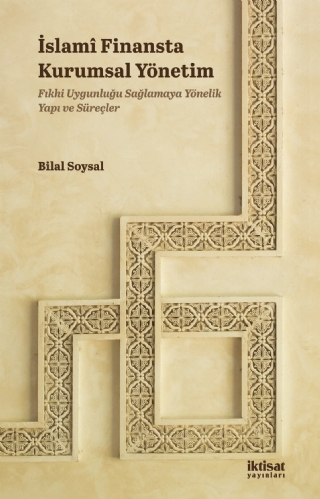
For an Islamic financial institution to survive and grow, it is essential that all stakeholders adopt a corporate governance approach to increase their trust in the institution. An effective corporate governance is necessary for an Islamic financial institution to manage the risk of non-compliance with Fiqh principles and rules, to grow in a healthy way, and to properly protect the interests of all stakeholders. In this context, an important part of corporate governance in Islamic financial institutions is an effective "Fiqh Compliance Management System" aimed at ensuring the compliance of activities with fiqh principles and rules. This book explains the Fiqh Compliance Management System in Islamic financial institutions in detail within the framework of literature and international standards, and the approaches of countries to the subject. it reflects in the context of legal regulations and reveals the situation of Turkey compared to other countries.
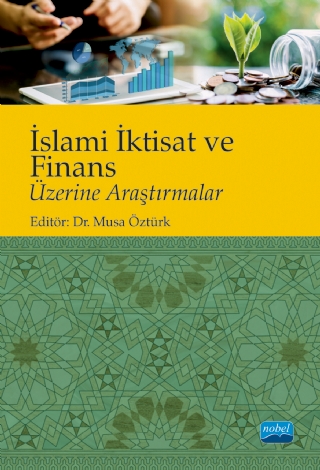
The problems we face today, where perhaps the fastest transformations in the history of humanity are experienced, trigger the search for a new normal, system and order in order to protect the current gains and to ensure an inclusive and sustainable growth and development process. These searches, which take place in almost every field, especially in socioeconomic and political fields; re-understanding the old, the re-discovery of the new, and the examination of the interaction between the old and the new. From an economic point of view as a result of these searches, discussions on the new economic system are being mobilized, and the problems of what will replace the old systems, how the new order will function, and how to define the roles of these new normally known economic actors are questioned -objectively and normatively. One of the efforts made in this context is the studies carried out within the scope of Islamic Economics and Finance, which is the richest in terms of experience, originality and consistency, and the impact/repercussion of these studies is increasing and expanding day by day across the world.
In order to support this effect/echo, this book, which was initiated by using the blind arbitrator process, begins by examining the subject of interest, which functions as litmus paper in terms of economic thought and systems. After the interest topic, there are sections on zakat, the state, solidarity institutions and participation banks, respectively. Within the scope of Islamic Finance; financing models, blockchain technology, behavioral finance and investment attorneyship are examined, followed by applied studies on the economy-finance relationship. Thus, it has been tried to contribute to the efforts of humanity in general and Turkey in particular to get rid of the systematic bottlenecks and deadlocks, and to the aims of understanding the old, discovering the new and examining the old-new interaction within the scope of Islamic Economics and Finance.
In order to support this effect/echo, this book, which was initiated by using the blind arbitrator process, begins by examining the subject of interest, which functions as litmus paper in terms of economic thought and systems. After the interest topic, there are sections on zakat, the state, solidarity institutions and participation banks, respectively. Within the scope of Islamic Finance; financing models, blockchain technology, behavioral finance and investment attorneyship are examined, followed by applied studies on the economy-finance relationship. Thus, it has been tried to contribute to the efforts of humanity in general and Turkey in particular to get rid of the systematic bottlenecks and deadlocks, and to the aims of understanding the old, discovering the new and examining the old-new interaction within the scope of Islamic Economics and Finance.
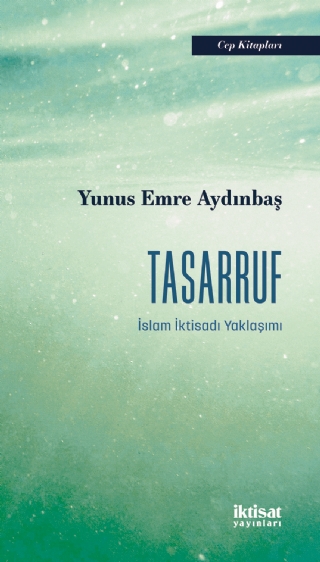
In this sixth book of the Pocket Books series, which aims to deal with the basic institutions and issues of Islamic economics in a content that can be easily understood by people of all levels, rather than a theoretical depth; The issue of saving, which has not received the attention of Islamic economics researchers, has been handled not only from an economic point of view, but also from a multifaceted perspective in terms of social, legal, moral and cultural aspects.
Despite its small volume, the work reveals the current state of Islamic economic studies through the concept of savings, and invites the reader to a modest search for the political economy of Islam from the crossroads of thought on the question of how the savings phenomenon can be shaped in Islamic economy.
Despite its small volume, the work reveals the current state of Islamic economic studies through the concept of savings, and invites the reader to a modest search for the political economy of Islam from the crossroads of thought on the question of how the savings phenomenon can be shaped in Islamic economy.
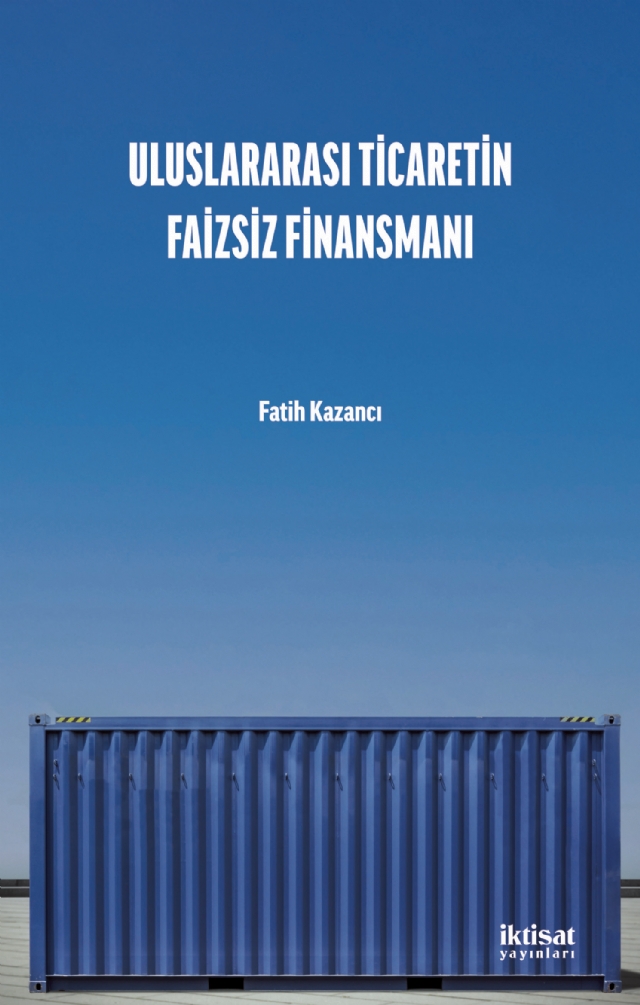
When we look at the world in general, not only conventional banks but also interest-free banks finance international (foreign) trade. Conventional banks can finance all kinds of legal goods or services with interest. Interest-free banks, on the other hand, can only mediate for goods that are halal to trade while financing international trade, and they can provide financing to international traders only with interest-free financing products. This book in your hand focuses on various interest-free financing products of interest-free banks and which interest-free financing products can support international traders. Thanks to this book, the reader will have the opportunity to learn about the development of international trade in our nearby geography, to get to know the interest-free institutions that support international trade, the types of contracts used in interest-free financing, and the current interest-free international trade finance products that have applications around the world.
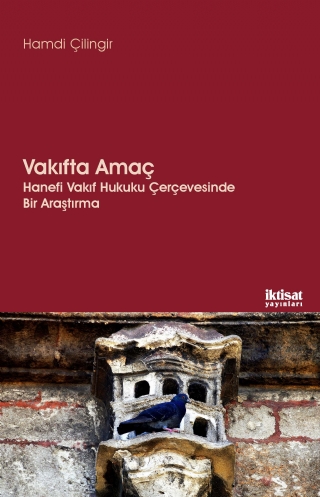
The foundation is a very important institution that takes its essence from the understanding of charity and infaq in Islam, has developed and enriched with the experiences of Muslims in the historical process, and covers almost all areas of life with the purposes it serves. Islam, on the one hand, obliges Muslims to perform obligatory sadaqah (sadaka-i vâcibe) such as zakat, alms, and tithe, on the other hand, encourages them to do voluntary sadaqah (sadaka-i nafilah). Among these futile types of charity, the foundation has followed a very important development course in history in terms of institutionalism, prevalence and the purposes it serves. The freedom of the person who established a foundation to set a purpose for his foundation has revealed a wide variety of purposes in foundations over time. Indeed, this diversity of aims has been well documented and demonstrated in historical studies.
This book approaches the issue of purpose in the foundation from a different perspective, deals with the issue in a legal framework and tries to draw a theoretical framework for the purpose of the foundation.
This book approaches the issue of purpose in the foundation from a different perspective, deals with the issue in a legal framework and tries to draw a theoretical framework for the purpose of the foundation.
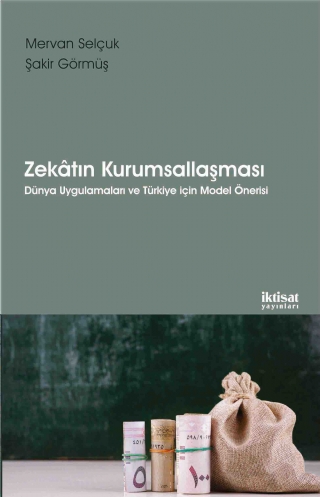
The connection of Muslims with zakat has decreased day by day and has almost reached the breaking point. It is seen that there is a decrease in the number of people who calculate zakat in accordance with its originality and deliver it to those who deserve it. While the zakat potential of Islamic countries can easily eliminate the problems of income distribution and poverty, the insufficient institutionalization of zakat causes many socio-economic problems and an inability to effectively combat existing problems. Hz. Although it cannot be collected and distributed under the authority of the state and forcibly, as in the Sunnah of the Prophet (pbuh), it is seen that zakat is tried to be implemented in an institutional structure with state support in countries such as Malaysia, Indonesia and Pakistan. In this study, information about the countries where zakat is applied in an institutional structure is given and these zakat institutions are examined comparatively. In the light of this information, taking into account the existing legal and institutional structures, a model has been created for a modernly applicable zakat institution in Turkey.
